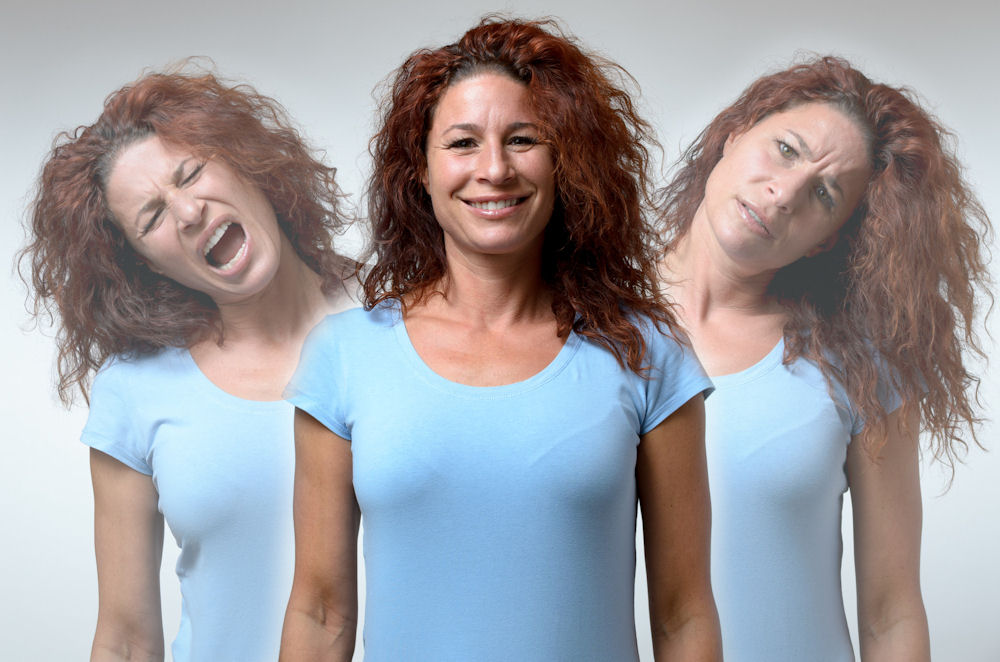Am I bipolar? Do I need bipolar disorder treatment in Portland? This is actually a tough question to answer. You may feel like your life is spinning out of control at times or like you don’t want to get out of bed. But, is it really a clinical disorder, or are you experiencing the natural ups and downs of being human?
If you think you may be bipolar, the best thing you can do is schedule an appointment with a licensed psychiatrist to help you identify if you are or not. If you go to your primary care physician, they may take your word for it and then put you on medications that could cause other health problems with no way to know if you actually need the medicine or not.
Am I Bipolar?
It is never a good idea to diagnose yourself with anything. When you are self-diagnosing, you are not able to be objective and, therefore, can administer a biased diagnosis. Always let a professional that is not involved in your situation do the diagnosing.
In short, the word bipolar literally means to have two poles that are the opposite. Polar opposites have a bipolar division; you are bipolar if your moods regularly swing from extreme high to extreme low and back.
There are four types of bipolar disorder as defined by the National Institute of Mental Health; they are as follows:
1. Bipolar I – This form of the disorder is very specific. Extreme mood cycles last for seven days, with the depressive cycle lasting up to two weeks. These cycles also display irregular behaviors that can be dangerous and even life-threatening.
2. Bipolar II – Similar to the one above, this includes episodes lasting different lengths of time between patients, and the swings are not as extreme. This definition of the disorder can cause it to be over-diagnosed in patients that may just need to make some lifestyle changes (such as quitting using drugs or alcohol) to no longer display the disorder.
3. Cyclothymia – This diagnosis is of mood cycling that is even less pronounced and perhaps lasts much longer, in the span of years, than bipolar II.
4. Unspecified Bipolar Disorders – These are when people appear to have bipolar symptoms that are not categorized under any of the other titles for the disorder.
Signs of Bipolar Disorder
There are both up-swing and down-swing signs to pay attention to.
Here are the signs of an upswing:
- Insomnia
- Multitasking
- Irritable
- Feeling high
- Increased activity
- Doing risky things
Here are the signs of a down-swing:
- Low energy
- Sad feeling
- Worried over nothing
- Forgetful
- Changes in eating habits
- Changes in sleep patterns and insomnia
If you or a loved one are showing signs of bipolar disorder, you may want to seek bipolar disorder treatment before the condition worsens.
Controlling What Can be Controlled
Eating a well-balanced diet and exercising regularly can help people manage symptoms of bipolar disorder. Holistic practices like acupuncture and journaling can help people manage their symptoms, too. Keeping track of their moods, learning more about their mental health, and increasing their support network can all be effective tools in treating bipolar disorder.
There is no one-size-fits-all solution to managing bipolar disorder, but there are things that people can do to help manage their symptoms. Eating a well-balanced diet, exercising regularly, and practicing holistic approaches like acupuncture and journaling can all be helpful in managing bipolar disorder. Keeping track of moods, learning more about the condition, and building a supportive network are also key in treatment.
In fact, addiction and bipolar disorder are two of the most common co-occurring mental disorders in the world. Because of that, finding reliable bipolar disorder treatment is essential for people who struggle with the disorder.
Treatment for Bipolar Disorder
 There isn’t one perfect treatment for bipolar disorder that works for everyone, but there are many options that can help. Treatment usually involves a combination of medication and therapy.
There isn’t one perfect treatment for bipolar disorder that works for everyone, but there are many options that can help. Treatment usually involves a combination of medication and therapy.
Medication can help stabilize your mood and make it easier to control your emotions. Common medications used to treat bipolar disorder include mood stabilizers, antipsychotics, and antidepressants.
Therapy can also be very helpful in treating bipolar disorder. It can provide you with tools to manage your symptoms and help you cope with the ups and downs of the illness.
If you have bipolar disorder, it’s important to work with a team of mental health professionals to develop a treatment plan that works for you. With proper treatment, you can manage your symptoms and live a full and productive life.
Finding Bipolar Treatment
Find treatment in your area if you feel you may have bipolar disorder. We cannot stress enough that you see a licensed therapist. Crestview Recovery offers a range of mental health treatments for those with a bipolar and addiction dual diagnosis. Call us today at 866.262.0531 to find out more!
































